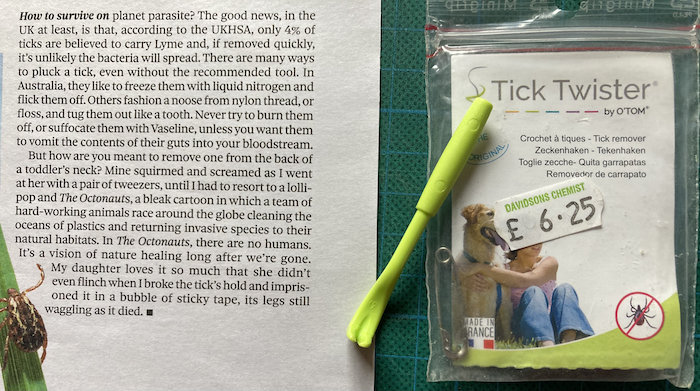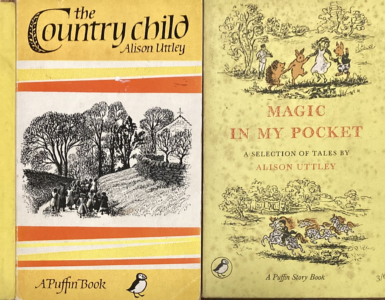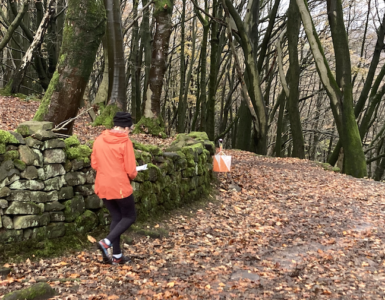Hunting controls?
Creatures more ancient than the dinosaurs are hunting you!
New members may not be aware of the hazards of Lyme disease, which (in part due to climate change) is becoming more prevalent in the UK.
Lyme has been an occupational hazard for orienteers for decades, and is caught from ticks that have fed on an infected host animal. This is one of the reasons why British Orienteering insists on full leg cover at terrain events — tho bizarrely the International Orienteering Federation does not!
If you’re running at any terrain/parks events as the weather gets warmer, you should shower ASAP after your run, and carry out a full tick check while in the shower. You should stay vigilant in the following weeks for any flu-like symptoms and the tell-tale bulls-eye rash (but note that only 1/3 of people with Lyme have this rash). See your GP immediately and say you are worried about Lyme Disease, if either of these occur within 3 weeks of a tick bite. The disease responds to antibiotics, and, as ever, it’s best to treat within 2 months of the bite.
While Dave and I were walking Offa’s Dyke, Dave spotted Charlie Gilmour’s feature on Lyme Disease in The Observer, so I tore it out, and dutifully carried it on my back for some 215 muddy miles, to bring you upto speed on the story! (Or you can read the whole article here.)
- There are 20 species of tick in the UK, and Lyme is only one of the diseases they spread.
- Most ticks are specialist parasites, only capable of taking blood from a particular host species.
- However, the species that spreads Lyme is Ixodes ricinus — the sheep tick or castor bean tick. This wee critter feeds on sheep, mice, rats, deer, dogs and humans, making it a superspreader.
- Borellia is the bacteria that causes Lyme, and ticks that carry this are healthier because they:
– have higher fat reserves
– are therefore better at surviving temperature extremes
– are more active and thus more likely to bite.
Arlene Brailey of the Lyme Resource Centre says that ticks are present in London Parks. Brailey’s son Marcus caught Lyme age 18 and was misdiagnosed for several years, with conditions such as chronic fatigue.
It’s important to remember that Lyme isn’t the only tick-borne infection. A bite from an infected tick can cause tick-borne encephalitis (TBE; inflammation of the encephalon, part of the mid-brain). NHS advice on this condition is here.
We’ve been picking up ticks most summers for the last 35 years, and find that the best way to check is in the shower, by running your hands over all of your body as you lather and rinse. Some ticks are so small that it might be a day or two before you find them, maybe in your next shower of the week. Ask someone else to check the backs of your legs as soon as you change – discreetly – after the event.
If you are worried you have symptoms, go to your GP. Not all GPs have heard of Lyme or TBE, so you should mention Lyme and ask for a blood test. As stated in The Observer article, these conditions can often be misdiagnosed as chronic fatigue, or a mental health condition such as depression.
Lyme Disease Action have an excellent website if you want to find out more.





